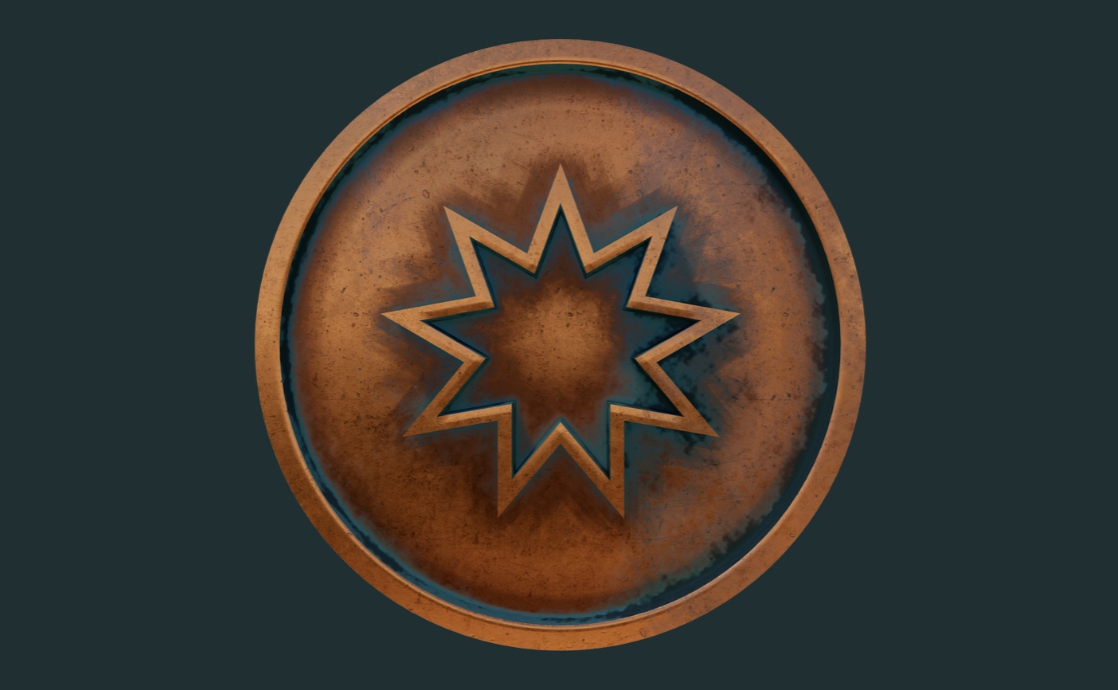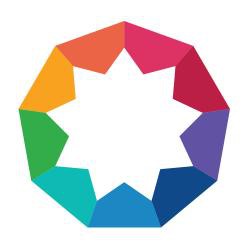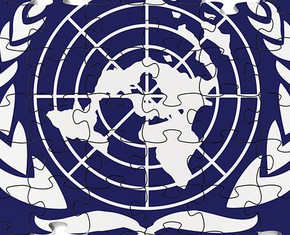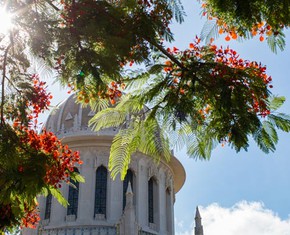The views expressed in our content reflect individual perspectives and do not represent the authoritative views of the Baha'i Faith.
Today Baha’is everywhere celebrate the Day of the Covenant, an annual Baha’i holy day that recognizes the overall concept of a covenant between God and humanity that finds expression in all Faiths.
On the Day of the Covenant, Baha’is set aside an entire day to celebrate the appointment of Abdu’l-Baha as the Center of Baha’u’llah’s Covenant – creating the first step in an unbroken, unified line of spiritual guidance that safeguards the Baha’i Faith from division and disunity. Abdu’l-Baha said:
As to the most great characteristic of the revelation of Baha’u’llah, a specific teaching not given by any of the Prophets of the past: It is the ordination and appointment of the Center of the Covenant. By this appointment and provision He has safeguarded and protected the religion of God against differences and schisms, making it impossible for anyone to create a new sect or faction of belief. To ensure unity and agreement He has entered into a Covenant with all the people of the world, including the interpreter and explainer of His teachings, so that no one may interpret or explain the religion of God according to his own view or opinion and thus create a sect founded upon his individual understanding of the divine Words.
RELATED: When Abdu’l-Baha Left This World
Every religion brings a new covenant, and every religion takes part in a larger, over-arching one, as well. The larger agreement and covenant basically describes the age-old connection and contract between the Creator and His creation – that God will provide humanity with spiritual guidance and confer blessings on us if we will follow it.
Two Categories of Covenants
The Baha’i teachings include explanations of two kinds of covenants – the Greater Covenant, a spiritual contract between every Divine messenger and humanity that promises the messenger will one day return; and a Lesser Covenant, which establishes a nexus of guidance and authority after the passing of the prophet. Shoghi Effendi, the Guardian of the Baha’i Faith, described these two covenants in his book God Passes By:
The Greater Covenant into which, as affirmed in [the Bab’s] writings, God had, from time immemorial, entered, through the Prophets of all ages, with the whole of mankind, regarding the newborn Revelation, had already been fulfilled. It had now to be supplemented by a Lesser Covenant which He felt bound to make with the entire body of His followers concerning the One Whose advent He characterized as the fruit and ultimate purpose of His Dispensation. Such a Covenant had invariably been the feature of every previous religion.
The religions of the past, including the earlier Abrahamic Faiths – Judaism, Christianity, and Islam, whose adherents today constitute the majority of the world’s population – did not incorporate a lesser covenant into their teachings. In fact, the prophets and founders of those religions – Abraham and Moses; Jesus Christ; and Muhammad – passed away without clearly naming a successor or an authorized interpreter. This fact resulted in differing opinions and division, which ultimately led to splits, schisms, and sects, vitiating the strength of those Faiths early in their histories. Instead of transmitting one consistent and divinely-inspired message to humanity, the sectarianism that occurred soon after the prophets’ passing created conflict and contention, which eventually led to hostility and even war. Today each of those Faiths have longstanding sectarian divisions.
The Baha’i Faith, in a major departure from this previous pattern, has retained and maintained its singular unity since it began almost two centuries ago. Since Baha’u’llah’s passing, one unified Baha’i Faith has continued to exist everywhere – and in fact has become the world’s second-most widespread religion as a result.
This means that Baha’u’llah’s covenant – an explicit, written document called The Book of the Covenant included in Tablets of Baha’u’llah, with clear instructions about his successor and that successor’s authority – is unique in religious history.
In The Book of the Covenant Baha’u’llah definitively named his eldest son Abdu’l-Baha as his successor and the authorized interpreter of his teachings. He specifically outlawed disunity among the Baha’is, reaffirming his revelation from God as a peaceful and unifying force. In The Book of the Covenant, Baha’u’llah wrote: “O ye that dwell on earth! The religion of God is for love and unity; make it not the cause of enmity or dissension.” He also wrote: “Conflict and contention are categorically forbidden in His Book. This is a decree of God in this Most Great Revelation.”
This lesser covenant established a clear line of succession and interpretative authority from Baha’u’llah to Abdu’l-Baha to Shoghi Effendi, the Guardian of the Baha’i Faith after Abdu’l-Baha’s passing, and finally to the Universal House of Justice, which now serves as the democratically-elected global leadership body of the Faith at the Baha’i World Centre in Haifa Israel.
RELATED: All Faiths Are One Faith
The Baha’i Principle of Progressive Revelation
For Baha’is the greater Divine covenant underpins one of the core concepts of the Baha’i teachings – progressive revelation. The Baha’i teachings say that God reveals religious and mystical truth by sending humanity a systematic succession of prophets and messengers throughout history. Baha’is see those great teachers, the founders of the world’s major Faiths, as bringing different stages in one continuous spiritual educational system for everyone. Those Divine messengers each made a promise to their followers that they would return. That eternal covenant, which calls on every person of faith to recognize and accept the next messenger, forms the basis of the system of divine education called progressive revelation.
That’s why Baha’is see the unity of religion originating in an organic, unbroken chain of God’s messengers, who all taught the same essential Faith.
















Comments
Sign in or create an account
Continue with Googleor